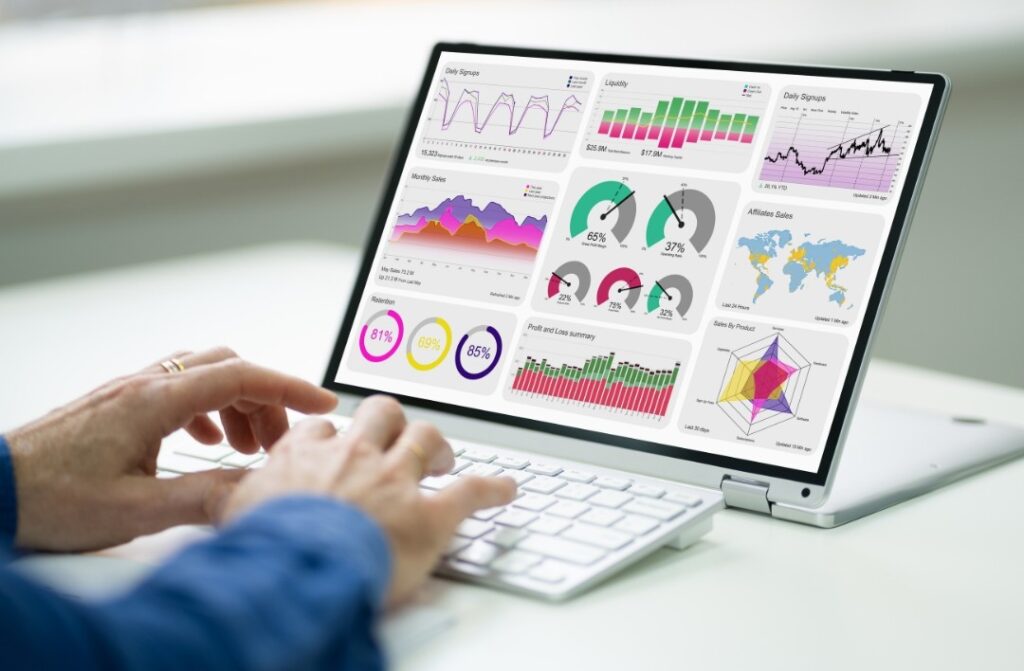What is a In an era dominated by digital transformation, data has emerged as the lifeblood of business, technology, and innovation. From e-commerce platforms to healthcare providers and financial institutions, organisations of all kinds are harnessing data to make informed decisions, predict trends, and stay competitive. At the heart of this data-driven revolution lies a key player: the Data Analyst.
But what exactly does a Data Analyst do? What skills are required, how do you break into the field, and what’s the career outlook like in 2025? In this detailed guide, we’ll explore the exciting world of Data Analytics, its role in IT and Cyber Security, and how you can forge a successful career as a Data Analyst in today’s dynamic tech landscape.

Understanding the Role of a Data Analyst
A Data Analyst is a professional responsible for collecting, processing, and analysing data to help organisations make better decisions. They turn raw data into actionable insights, enabling businesses to optimise operations, improve products or services, and achieve strategic objectives.
Key Responsibilities
Here’s a breakdown of what a Data Analyst typically does:
- Data Collection: Gathering data from various sources such as databases, APIs, cloud storage, and even manual input.
- Data Cleaning: Ensuring the data is accurate, complete, and free from errors or inconsistencies.
- Data Analysis: Using statistical methods and tools to interpret complex datasets.
- Visualisation: Creating charts, graphs, and dashboards to present findings clearly.
- Reporting: Delivering regular and ad hoc reports to stakeholders, often including trends, forecasts, and recommendations.
- Collaboration: Working with IT teams, business leaders, marketers, and sometimes Cyber Security professionals to align data findings with organisational goals.
Why Data Analysts Are in High Demand in 2025
In 2025, demand for skilled Data Analysts continues to rise due to several key factors:
- Data Explosion: By 2025, the world is expected to generate over 180 zettabytes of data. Businesses need professionals to make sense of it.
- Digital Transformation: From small startups to global enterprises, digitisation is in full swing. Data Analytics is vital to this transition.
- Cyber Security: Data Analysts play a growing role in threat detection, risk analysis, and anomaly detection within the field of Cyber Security.
- AI and Automation: While AI can process data quickly, human analysts are still needed for interpretation, ethics, and decision-making.
The Skills You Need to Become a Data Analyst
Whether you’re a recent graduate, a professional looking to switch careers, or someone already in IT, the path to becoming a Data Analyst involves mastering both technical and soft skills.
Technical Skills
- Excel: Still a fundamental tool for data manipulation and quick analyses.
- SQL: Essential for querying and managing relational databases.
- Programming Languages: Python and R are popular for advanced analytics and automation.
- Data Visualisation Tools: Tableau, Power BI, or Looker are commonly used to present data.
- Statistical Analysis: Understanding probability, regression, and other statistical models is crucial.
- Cloud Platforms: Familiarity with AWS, Google Cloud, or Azure for big data projects.
Soft Skills
- Critical Thinking: The ability to interpret data and draw logical conclusions.
- Communication: Translating technical insights into business-friendly language.
- Problem-Solving: Identifying inefficiencies or opportunities from patterns in the data.
- Attention to Detail: One mistake in a dataset can lead to poor decisions.
Education and Certification Options
You don’t necessarily need a traditional degree to become a Data Analyst in 2025, although many professionals do come from backgrounds in mathematics, statistics, computer science, or economics.
Academic Pathways
- Bachelor’s Degree: Typically in Data Science, Statistics, Computer Science, Economics, or IT.
- Master’s Degree: Ideal for specialised roles, especially in Data Science or Cyber Security Analytics.
Certifications
For career changers or those looking to boost their credentials, these certifications are highly valued:
- Google Data Analytics Certificate
- Microsoft Certified: Data Analyst Associate
- IBM Data Analyst Professional Certificate
- CompTIA Data+
- Certified Analytics Professional (CAP)
Certifications in Cyber Security, such as CompTIA Security+ or Certified Information Systems Auditor (CISA), also help if you’re interested in combining analytics with security.
How Data Analytics Fits into IT and Cyber Security
As the IT industry becomes more data-centric, the role of the Data Analyst is extending beyond traditional business intelligence.
In IT Operations
- Performance Monitoring: Analysts help IT departments monitor system performance, detect issues, and recommend improvements.
- Process Optimisation: Data from networks, applications, and user logs is analysed to streamline IT workflows.
In Cyber Security
- Threat Detection: Data Analysts review logs and network data to identify unusual behaviour or potential breaches.
- Risk Assessment: Analysing historical security data to assess the probability and impact of threats.
- Compliance Reporting: Supporting regulatory compliance through accurate, detailed reporting of security metrics.
This intersection of Data Analytics and Cyber Security is becoming increasingly crucial in a world facing sophisticated cyber threats.
Tools of the Trade: A 2025 Toolkit
To thrive as a Data Analyst in 2025, you’ll need proficiency with modern tools. Here’s a quick overview:
| Category | Popular Tools |
| Data Management | SQL, PostgreSQL, MongoDB |
| Analysis & Programming | Python, R, Jupyter Notebooks |
| Visualisation | Tableau, Power BI, Google Data Studio |
| Cloud Platforms | AWS (Redshift), Google BigQuery, Azure Synapse |
| Workflow Automation | Apache Airflow, Alteryx |
| Security Tools (for analysts in Cyber Security) | Splunk, Kibana, SIEM platforms |
Day in the Life of a Data Analyst
To better understand the practical side of the job, let’s walk through a typical day for a Data Analyst working at a mid-sized e-commerce company.
Morning
- Review KPIs on the dashboard (daily sales, bounce rate, conversion rate).
- Attend a stand-up meeting with the marketing and IT teams to discuss new campaigns and tech rollouts.
Midday
- Use SQL to extract user activity data from the company database.
- Write a Python script to clean and preprocess the data.
- Conduct analysis to determine which marketing channel has the highest ROI.
Afternoon
- Visualise findings in Tableau and prepare a presentation for stakeholders.
- Respond to an ad hoc request from the Cyber Security team to check for anomalies in login behaviour following a suspicious alert.
End of Day
- Summarise insights and recommendations in a report.
- Update the data pipeline or automated scripts for the next day’s tasks.
Career Progression and Job Titles
A Data Analyst role is often the launchpad to several exciting career paths. Here’s a look at common trajectories:
Entry-Level
- Junior Data Analyst
- Business Intelligence Analyst
- Reporting Analyst
Mid-Level
- Data Analyst
- Data Scientist
- Marketing Analyst
- Financial Analyst
Senior-Level
- Senior Data Analyst
- Analytics Manager
- Data Science Lead
- Director of Business Intelligence
Specialised Roles
- Cyber Security Analyst (with focus on data-driven security)
- Machine Learning Engineer
- AI Data Strategist
- Cloud Data Engineer
As organisations continue to invest in AI and IT infrastructure, these roles are expected to evolve further, blending data analytics with disciplines like automation, security, and strategic planning.
Salary Expectations in 2025
As of 2025, salaries for Data Analysts vary depending on industry, location, experience, and expertise.
| Level | Average Annual Salary (UK) | Average Annual Salary (US) |
| Entry-Level | £30,000 – £45,000 | $60,000 – $75,000 |
| Mid-Level | £45,000 – £60,000 | $75,000 – $100,000 |
| Senior-Level | £65,000 – £85,000+ | $100,000 – $130,000+ |
Professionals with hybrid skills in Cyber Security or Cloud IT Infrastructure often earn even more due to the increased value of their cross-disciplinary expertise.
Industries Hiring Data Analysts in 2025
Data Analysts are not confined to tech companies. Virtually every sector now relies on data to guide strategic decisions. Top industries hiring in 2025 include:
- Finance & FinTech: Risk analysis, fraud detection, investment performance.
- Healthcare: Patient outcome analytics, operational efficiency, medical research.
- E-Commerce & Retail: Customer behaviour, inventory forecasting, digital marketing analytics.
- Manufacturing: Supply chain optimisation, quality control, predictive maintenance.
- Government & Public Sector: Policy impact studies, public health data, infrastructure planning.
- Cyber Security: Intrusion detection, threat intelligence, audit analytics.
Breaking Into the Field: How to Start Your Career as a Data Analyst
If you’re new to the world of data, here’s a roadmap to get started:
1. Learn the Basics
Start with online courses or bootcamps in Data Analytics, statistics, and programming. Platforms like Coursera, edX, and Udacity offer beginner-friendly options.
2. Build a Portfolio
Create projects that showcase your skills—build dashboards, perform case studies, or conduct exploratory analysis using public datasets.
3. Get Certified
Earn at least one certification to validate your knowledge and stand out to employers.
4. Network and Apply
Join LinkedIn groups, attend virtual data conferences, and apply for internships or junior analyst roles.
5. Stay Current
The field of Data Analytics is always evolving. Keep learning about AI, IT, cloud platforms, and Cyber Security to future-proof your career.
Conclusion: Is a Career as a Data Analyst Right for You?
If you enjoy problem-solving, working with numbers, and making data-driven decisions, then a career as a Data Analyst could be a perfect fit. With the rise of digital tools, the growth of the IT sector, and increasing emphasis on Cyber Security, Data Analysts are more important than ever.
Whether you’re entering the workforce or shifting careers, 2025 is a prime time to get involved in Data Analytics. With the right skills, mindset, and drive, you can join the ranks of professionals transforming how the world uses data.
Ready to start your journey? Begin by learning SQL, exploring a data visualisation tool, or earning a certification—and watch your career take shape in this fast-growing field.
